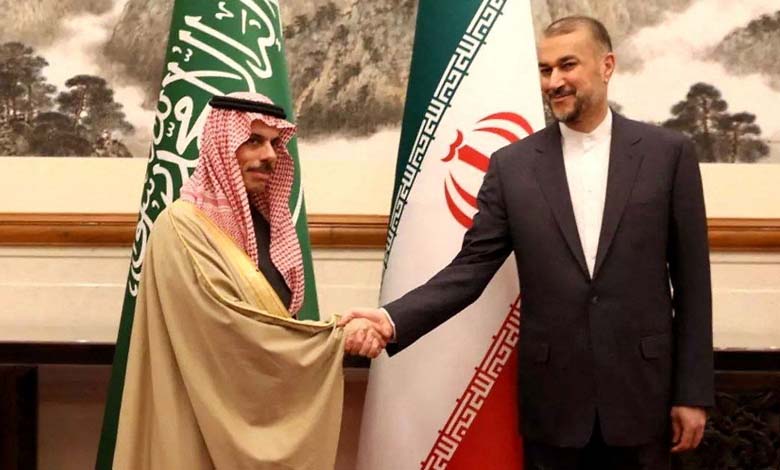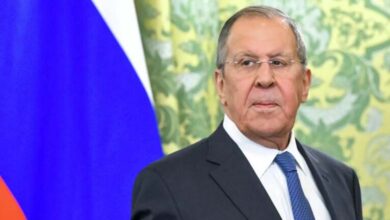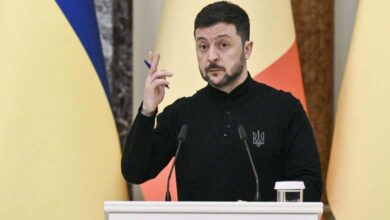Israel exploits the Iranian threat to persuade Saudi Arabia to normalize relations without a Palestinian solution
Saudi Arabia believes in establishing relations with Israel but insists that it should not be at the expense of the Palestinian people and that the creation of their state is essential

Israeli Energy Minister Eli Cohen expressed the possibility of normalization with Saudi Arabia, even if Israel refuses to move towards the establishment of a Palestinian state, considering that the security concerns related to the Iranian axis will outweigh Riyadh’s demands for a two-state solution to be part of the normalization deal, although Saudi Arabia insists that the resolution of the Palestinian issue be part of any peace agreement with Israel.
Cohen said in an interview with “Times of Israel” that “peace with Saudi Arabia is entirely possible,” adding that “the October 7th war highlighted the fact that Saudi Arabia needs this peace as much as Israel does, if not more.” He continued, “They will receive tools primarily from the United States to deal with the Iranian threat and terrorism.”
Referring to the 2019 attack on two major oil facilities in Abqaiq and Khurais, the Israeli minister asked, “Who attacked Saudi Arabia four years ago?” before answering himself: “Iran and the Houthis.” About two weeks ago, Saudi Ambassador to Britain Prince Khalid bin Bandar stated that his country is interested in normalizing relations with Israel after the Gaza war, but any normalization agreement “must lead to the establishment of a Palestinian state.” He revealed in a statement to BBC that the agreement was “imminent” when Saudi Arabia suspended talks mediated by the United States following the Israeli war on Gaza.
He added that Saudi Arabia still believes in establishing relations with Israel, despite the devastating losses in Gaza, but he said that it should not be “at the expense of the Palestinian people.” He also pointed out the “humanitarian betrayal” in Gaza because the international community did not do enough to end the fighting.
The Saudi ambassador’s statements came one day after a meeting between US Secretary of State Antony Blinken and Saudi Crown Prince Mohammed bin Salman in the Saudi city of Al-Ula. Blinken told reporters before leaving the kingdom regarding normalization between Israel and Saudi Arabia, “We talked about it really at every stop (of the tour), including of course here in Saudi Arabia.” He added, “There is clear interest here in seeking that… but it will require ending the conflict in Gaza and finding a practical path to establish a Palestinian state.”
Saudi Arabia has not recognized Israel and has not joined the Abraham Accords signed in 2020, sponsored by the United States, between Israel and the United Arab Emirates, Bahrain, Sudan, and Morocco. In September last year, the Saudi Crown Prince said in an interview with Fox News that Saudi normalization with Israel is “approaching every day more and more,” while Israeli Prime Minister Benjamin Netanyahu confirmed at the United Nations that his country is “on the threshold” of establishing relations with the Gulf kingdom.
The war between Hamas and Israel in Gaza that erupted on October 7th has hindered US-led efforts to reach a normalization agreement between Israel and Saudi Arabia. Cohen said, “This war confirms the importance of regional alliance and stability. Whoever threatens Israel and moderate Islamic countries is the Shia axis (referring to Iran and its proxies in the region).”
He added, “The first and main thing the Saudis want is their security to deal with the threat looming over them,” and continued, “The Palestinian state is something I don’t see happening. We saw Israel withdraw from Gaza, and Gaza turned into a terrorist state ruled by the terrorist Hamas with funding from Iran.”
The declared positions of Palestinian leaders indicate that they will reject “completely and in detail” any agreement that does not include the establishment of their state. However, officials said earlier this month that, in private sessions, they are demanding financial support and more control over the land in the West Bank in exchange for engaging with the Saudi-Israeli track mediated by the United States.
The Saudi ambassador in London said, “The problem with the current government in Israel is that its outlook is absolutely extremist and does not allow for achieving consensus. Therefore, you will never be able to end the conflict.” Prince Khalid also warned of the risks of fueling extremism as a result of the war, in which Israel killed thousands of civilians in Gaza, causing a devastating humanitarian crisis.
He pointed out that “the unprecedented level of violence practiced by both parties in the past three months, especially Israel, which is supposed to be a responsible state, I don’t think I’ve seen anything like it in my life. The numbers are truly sad.” He added, “This will lead to losing hope not only among the Palestinians but among all those upset with the situation worldwide. Everyone sees the decline of humanity in what is happening because no one has done anything to stop it. There are efforts being made, but they are not enough.”












